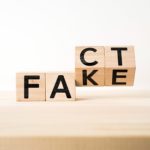 Last year researchers at Cambridge University created a game to try and inoculate people against fake news. The idea was that by improving our information literacy, it made players better able to distinguish fake news from authentic news.
Last year researchers at Cambridge University created a game to try and inoculate people against fake news. The idea was that by improving our information literacy, it made players better able to distinguish fake news from authentic news.
This basic remedy is shared by a recent study from Ohio University, which found that basic information literacy is the best buffer against fake news. It suggests that it’s actually quite straightforward to verify the reliability of information, but even simple steps are often avoided by people when consuming and sharing content online.
“Fake news and misinformation could be rightly termed as the major issues of our time. Almost every other study in this realm falls short of highlighting the vital role of individuals in halting the spread of misinformation,” the authors explain.
Fighting misinformation
The researchers tested their theory in Indonesia, with volunteers asked to rate not only their perceived internet skills, but also things such as their self-esteem and attitudes towards fact checking, reliability and their propensity to share information without fact checking it. Of the nearly 400 participants, it emerged that their level of information literacy was far and away the most important factor, and more so than age, class or gender.
“The important role of information literacy is often taken for granted. It was found that information verification skills such as simply Googling some new piece of information and not sharing it right away could prove beneficial in halting the spread of misinformation,” the authors explain. “In addition, information verification attitude greatly mattered.”
The authors believe that a healthy dose of skepticism is a good thing when searching online, and having such an attitude significantly helps in the fight against misinformation. The study found that whilst most participants thought it important to only share reliable information, many lacked the skills to accurately assess whether the things they shared were reliable or not.
As such, these people, who typically have lower education and income levels, would significantly benefit from information literacy training and support so that they develop such assessment capabilities. Given those who seem to back conspiracy theories and other incorrect information do so with particular pride and gusto however, persuading them that they need to brush up their skills may be somewhat easier said than done.